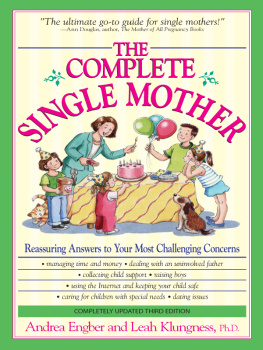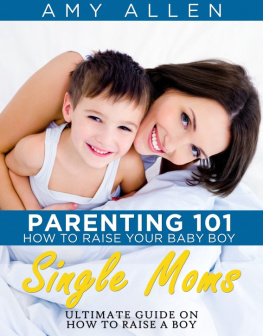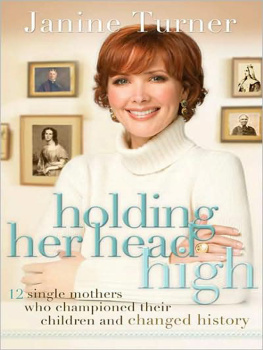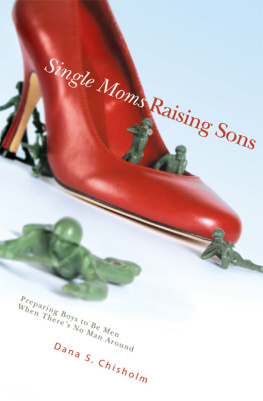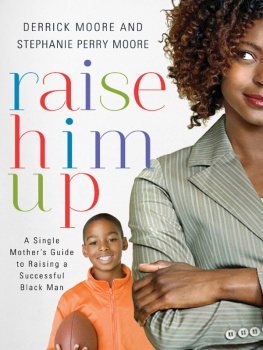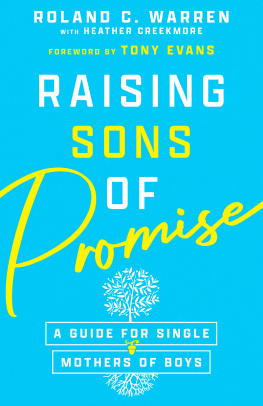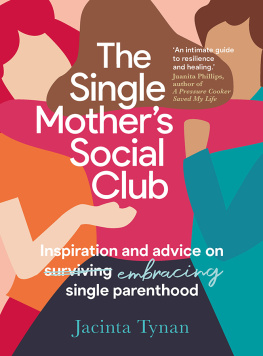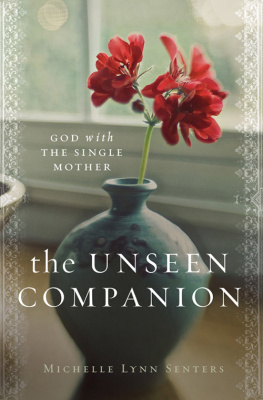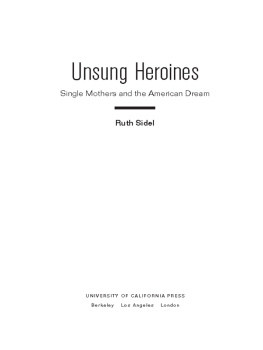Thank you for buying this ebook, published by NYU Press.
Sign up for our e-newsletters to receive information about forthcoming books, special discounts, and more!
Sign Up!
About NYU Press
A publisher of original scholarship since its founding in 1916, New York University Press Produces more than 100 new books each year, with a backlist of 3,000 titles in print. Working across the humanities and social sciences, NYU Press has award-winning lists in sociology, law, cultural and American studies, religion, American history, anthropology, politics, criminology, media and communication, literary studies, and psychology.
Single Mother
Single Mother
The Emergence of the Domestic Intellectual
Jane Juffer
NEW YORK UNIVERSITY PRESS
New York and London
www.nyupress.org
2006 by New York University
All rights reserved
Library of Congress Cataloging-in-Publication Data
Juffer, Jane
Single mother : the emergence of the domestic intellectual/
Jane Juffer.
p. cm.
Includes bibliographical references and index.
ISBN13: 9780814742792 (cloth : alk. paper)
ISBN10: 0814742793 (cloth : alk. paper)
ISBN13: 9780814742808 (pbk. : alk. paper)
ISBN10: 0814742807 (pbk. : alk. paper)
1. Single mothersUnited States.
2. Single mothersUnited StatesPublic opinion.
3. Single mothersGovernment policyUnited States. I. Title.
HQ759.915J84 2005
306.874320973dc22 2005029006
New York University Press books are printed on acid-free paper,
and their binding materials are chosen for strength and durability.
Manufactured in the United States of America
c 10 9 8 7 6 5 4 3 2 1
p 10 9 8 7 6 5 4 3 2 1
To Alex, with all my love
Contents
Acknowledgments
I cant remember when I decided to write this book. The plan must have emerged, gradually, over the last decade or so, in between or during trips to the park, the emergency room, the childrens library, the soccer field, and the take-out restaurants. Ideas interspersed in the loads of laundry, the packing of lunches, the Lego projects. Notes jotted down here and there, on bits of paper and napkins, thoughts about single mothers on television and in film. Conversations with other mothers, single and married, interwoven with academic discussions of care of the self and domesticity. In the spring of 2002, I realized that I had inadvertently started writing this book. And I have my son Alex to thank for leading me through the craziness of everyday life.
I owe so much to all of the single mothers I talked with along the way: women at the Rebecca Project in Washington, D.C., along the U.S.-Mexican border in Texas, and at the Puerto Rican Cultural Centers Family Learning Center in Chicago. There were also mothers at home, in State College, Pennsylvania, who inspired and sustained me. Among them, I am most indebted to Julia Kasdorf, a paradigmatic domestic intellectual. For her tireless commitment to reciprocity and community, to an ethics of caring and curiosity, I am forever grateful (not to mention all the homemade meals, gifts picked up at thrift stores, and just-in-time e-mails and phone calls). She also read and scribbled comments and questions on almost every page of the manuscript, even when caught up in her own busy life of mothering and writing.
My parents, Ron and Peg Juffer, have supported Alex and me, making the long trip from Iowa to Pennsylvania without complaint and adding much love to our household. My mother transformed many a dull day into a fun time with her wit and laughter and skill at games, and my father did the same with his unfailing left-handed hook shot and belief in the Cubs.
For research assistance, I am indebted to Jennifer Hergenreder, who not only found dozens of useful legal articles but also read them carefully and asked exactly the right questions (often answering them at the same time). Vilma Shu also displayed considerable initiative and creativity in her research. On the road, I was assisted in my interviewing by Jonathan Jones, a committed activist and organic intellectual at Proyecto Libertad, and by his colleagues Nathan Selzer and Nilda Prado. In Chicago, my friends of almost fifteen years, Margaret and Melinda Power, provided moral, political, and intellectual support as well as a place to stay. Thanks also to the Puerto Rican Cultural Center folks, especially Jos Lopez and Marsol Morales, for their time and patience. And to my other Chicago ally, Esteban Cruz, thanks for the endless energy and good humor.
At Penn State, my colleague Ralph Rodriguez sustained me throughout the march to tenure, illustrating that smart people can also be committed organizers, activists, and friends. Vincent Lankewish has made me laugh at even the most dire of moments. Thanks to Jeff Nealon for his acerbic wit and clear analysis into all sorts of issues. Evan Watkins gave me trenchant feedback on a variety of writing projects. Susan Squier has been a valuable friend and mentor. I also have benefited from conversations about what cultural studies is (still an open question) with Megan Brown, Amy Mendenhall, and other graduate students in my seminars over the past five years.
My editor, Eric Zinner, believed in this project from the start. Thanks also at NYU to Emily Park and to freelance copyeditor Alice Calaprice as well as to the anonymous readers for their suggestions. An early version of my argument was published in Cultural Studies 17(2): 2003.
Finally, to Grant, amor de mi vida, thank you for coming into our lives, for your passion, and for helping me see where to go next.
Introduction
Domestic Intellectuals: Freedom and
the Single Mom
The year is 1992. On the campaign trail, Vice President Dan Quayle blames single mothers for the dissolution of family values. He derides Candace Bergens character Murphy Brown, a successful television anchorwoman, for flaunting fatherhood and making the decision to become a single mother just another lifestyle choice. Quayles denunciation is echoed in policy-making circles by conservative guru Charles Murray and others, who characterize single mothers as lazy, promiscuous, and nearly unredeemable.
A decade later. The Family Friendly Programming Forum, a consortium of advertisers that funnels seed money to promising shows, subsidizes for the fourth straight season WBs The Gilmore Girls, which features a never-married mother and her teenage daughter who are integral members of a tight-knit community. Jennifer Anistons girl-next-door character on Friends, Rachel, gets pregnant and decides to keep the baby but not marry Ross, the father. Sex and the Citys Miranda also decides to become a single mom. The winner of the 2004 American Idol contest is Fantasia Barrino, a nineteen-year-old single mom from High Point, North Carolina, who one night brings her one-year-old daughter Zion up on stage and urges all single moms to believe that they can do whatever they want. The runner-up is sixteen-year-old Diana DeGarma, daughter of a single mom from Snellville, Georgia. Wal-Mart, site of family values, runs a commercial showing a woman trailed by her children, saying: Im a single mom, and I depend on Wal-Mart to get by.
Wal-Mart also appears as a champion of single mothers in the film Where the Heart Is, in which Natalie Portman plays a penniless pregnant teenager named Novalee Nation. Abandoned by her boyfriend in Sequoia, Oklahoma, Novalee chooses the local Wal-Mart as her temporary home, sneaking into the store to sleep at night. She gives birth amid the racks of clothing and promptly becomes a national media celebrity, mother of the Wal-Mart baby. The president of Wal-Mart sends her $500 and promises a job at any store in the country. Paying homage to the nation that embraces rather than judges her, Novalee names the baby Americus and proves that she can indeed embody the entrepreneurial spirit of her daughters birthplace, becoming a prize-winning photographer and building her own home. Americus is no bastard child. She redefines the nation that Wal-Mart once stood forthe nation of nuclear families buying American. Now, any family that can buy American merits respect.


